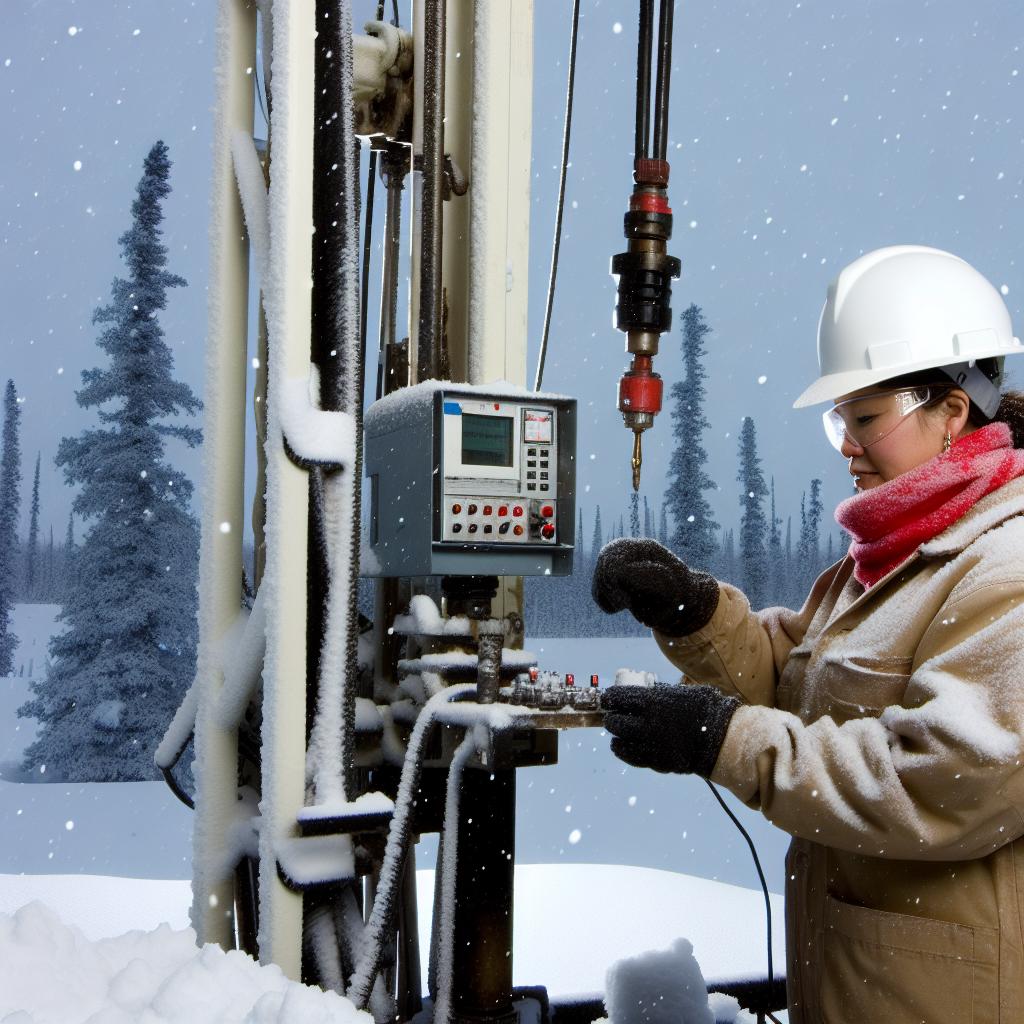Introduction to Petroleum Engineering and Its Importance in Canada
Petroleum engineering plays a crucial role in Canada’s economy.
This field focuses on extracting oil and gas from the earth efficiently.
Canada boasts vast reserves of hydrocarbons, making petroleum engineering vital.
Moreover, this discipline contributes significantly to energy production.
It also supports job creation in various sectors related to energy.
As a result, universities in Canada offer specialized programs in petroleum engineering.
Students gain essential skills to address industry challenges.
They learn to design and implement extraction processes.
Additionally, students focus on sustainable practices in energy production.
The importance of this field is evident in Canada’s global energy position.
As innovations emerge, petroleum engineers will adapt to new technologies.
The demand for skilled professionals continues to rise.
Consequently, pursuing a degree in petroleum engineering can lead to a rewarding career.
In summary, petroleum engineering is integral to Canada’s energy future.
Choosing the right university for this field is crucial for aspiring students.
Top Universities Offering Petroleum Engineering Programs
University of Alberta
The University of Alberta offers a renowned petroleum engineering program.
Students benefit from cutting-edge research and industry collaborations.
Also, the university features state-of-the-art facilities for hands-on learning.
University of Calgary
The University of Calgary is well-regarded for its petroleum engineering curriculum.
It emphasizes a balanced approach to theoretical knowledge and practical skills.
Moreover, students engage with industry leaders through various programs.
Dalhousie University
Dalhousie University excels in offering interdisciplinary petroleum engineering education.
The program covers essential topics such as energy resources and environmental impact.
Additionally, students have access to innovative research opportunities.
University of Saskatchewan
The University of Saskatchewan provides a comprehensive petroleum engineering education.
Unlock Your Career Potential
Visualize a clear path to success with our tailored Career Consulting service. Personalized insights in just 1-3 days.
Get StartedStudents explore various aspects, from drilling to production methods.
Also, industry partnerships enhance learning experiences and job placements.
Western University
Western University boasts an engaging petroleum engineering program.
The curriculum focuses on both technical and managerial aspects of the industry.
Furthermore, students benefit from a solid alumni network in the energy sector.
Memorial University of Newfoundland
Memorial University offers unique opportunities for aspiring petroleum engineers.
Students delve into research addressing offshore oil and gas production.
Moreover, the program encourages innovation and sustainable practices in energy.
University of Alberta
Overview of the Program
The University of Alberta offers a comprehensive petroleum engineering program.
This program equips students with foundational knowledge and practical skills.
It focuses on essential topics like drilling, production, and reservoir engineering.
Students benefit from hands-on learning through labs and field trips.
The curriculum is designed to meet industry demands.
Special Features
The university provides access to state-of-the-art facilities for students.
Research opportunities are abundant, enabling innovation in petroleum engineering.
The faculty comprises experienced professionals from the oil and gas industry.
Networking events connect students with industry leaders.
Additionally, internships enhance real-world experience and employability.
Career Prospects
Graduates from the petroleum engineering program enjoy excellent job prospects.
Many find positions with leading oil and gas companies worldwide.
Opportunities also exist in consulting and regulatory agencies.
The program prepares students for various roles in the energy sector.
Moreover, alumni create strong professional networks, benefiting career growth.
Delve into the Subject: Education Requirements for Aspiring Chemical Engineers
University of Calgary: Curriculum Highlights and Research Opportunities
Curriculum Overview
The University of Calgary offers a comprehensive petroleum engineering program.
This program combines theoretical knowledge with practical applications.
Students engage in hands-on training in state-of-the-art facilities.
Courses cover reservoir engineering, drilling systems, and production techniques.
Moreover, students study geology and thermodynamics relevant to petroleum extraction.
Capstone Design Projects
The curriculum includes a significant capstone design project.
Students work in teams to solve real-world engineering problems.
This experience enhances problem-solving and teamwork skills.
Projects often involve collaboration with industry partners.
As a result, students build valuable connections for future internships and jobs.
Research Opportunities
The University of Calgary promotes a strong research culture.
Petroleum engineering students can engage in cutting-edge research projects.
Faculty members are experts in various petroleum-related fields.
Research topics include enhanced oil recovery and environmental sustainability.
Students can contribute to research publications and conferences.
Internships and Industry Connections
Students benefit from numerous internship opportunities throughout their studies.
The university collaborates with leading companies in the petroleum sector.
Internships provide practical experience and industry exposure.
Networking during internships often leads to job offers after graduation.
Thus, students graduate with a competitive advantage in the job market.
Learn More: Effective Networking Tips for Petroleum Engineers
Memorial University of Newfoundland: Unique Aspects of the Petroleum Engineering Degree
Comprehensive Curriculum
The petroleum engineering program at Memorial University offers a robust curriculum.
Students gain essential knowledge in drilling, production, and reservoir engineering.
This comprehensive approach ensures that graduates are well-rounded and market-ready.
Hands-On Learning Opportunities
Memorial University emphasizes practical experience throughout the degree.
Students participate in laboratory work that simulates real-world scenarios.
Additionally, internships allow students to gain valuable industry insights.
Research and Development Focus
The university provides ample opportunities for students to engage in research.
Students can work alongside faculty on innovative projects in petroleum engineering.
This focus on R&D enhances critical thinking and problem-solving skills.
Collaborative Environment
Memorial fosters a collaborative learning environment among students.
Group projects encourage teamwork and effective communication skills.
This aspect is crucial for success within the industry.
Industry Connections
The university maintains strong ties with industry leaders in petroleum engineering.
Guest lectures and networking events facilitate connections between students and professionals.
These connections often lead to internships and job opportunities after graduation.
Supportive Faculty
Students benefit from the guidance of experienced faculty members.
Professors offer mentorship that helps students navigate their academic paths.
This support enhances the overall learning experience at Memorial University.
Gain More Insights: Mechatronics Engineering in Canadian Manufacturing

University of Saskatchewan: Campus Facilities and Industry Connections
State-of-the-Art Campus Facilities
The University of Saskatchewan offers cutting-edge facilities for petroleum engineering students.
Students access modern laboratories equipped with advanced technology.
These labs enhance hands-on learning experiences.
Additionally, the university features extensive libraries that support research initiatives.
Students also benefit from simulation environments that mirror real-world scenarios.
Overall, the infrastructure fosters an engaging learning atmosphere.
Strong Industry Connections
The university maintains robust relationships with leading petroleum industry companies.
Collaborations provide students networking opportunities with industry professionals.
Internships and co-op programs are integral parts of the curriculum.
Students gain valuable work experience through these initiatives.
Furthermore, guest lectures and workshops are held frequently.
These events connect students with experts in the field.
As a result, graduates are well-prepared for their careers in petroleum engineering.
Research Opportunities
Research plays a vital role in the university’s petroleum engineering program.
Students can participate in innovative projects focusing on sustainability.
These projects often address pressing energy challenges.
Faculty members are involved in cutting-edge research, fostering mentorship.
Students may also access funding for their research initiatives.
This support encourages pioneering work in the petroleum sector.
Community Engagement
The university emphasizes community involvement and outreach.
Students often engage in local events related to energy and engineering.
These activities enhance their understanding of community needs.
Moreover, they develop leadership skills that are crucial in their careers.
By interacting with diverse groups, students broaden their perspectives.
Overall, community engagement enriches the educational experience.
Find Out More: Day-to-Day Life of a Petroleum Engineer Explained
University of Toronto: Interdisciplinary Approach and Innovations in Energy
Overview of the Program
The University of Toronto offers a robust petroleum engineering program.
This program emphasizes an interdisciplinary curriculum.
Students explore engineering, geology, and environmental science.
The integration of various fields fosters a holistic understanding of petroleum systems.
Innovative Research Initiatives
The university is home to cutting-edge research in energy systems.
Students actively participate in innovative projects.
Research areas include renewable energy and sustainable extraction methods.
Moreover, collaboration with industry leaders enhances practical learning.
Facilities and Resources
The University of Toronto boasts state-of-the-art facilities.
Laboratories are equipped with advanced technology for hands-on experience.
Students have access to extensive libraries and research databases.
This wealth of resources supports their academic and professional growth.
Expert Faculty
The faculty consists of leading experts in petroleum engineering.
Professors bring invaluable industry experience to the classroom.
Students benefit from personalized mentorship and guidance.
This support significantly enhances their learning journey.
Industry Partnerships
Collaboration with energy companies is a priority at the university.
Partnerships facilitate internships and co-op opportunities.
Students gain real-world experience while pursuing their studies.
Additionally, these connections often lead to career opportunities post-graduation.
Career Opportunities After Graduating from Petroleum Engineering in Canada
Exploring Diverse Career Paths
A degree in petroleum engineering opens numerous career opportunities.
Graduates can pursue roles in oil and gas exploration companies.
They may also find positions in environmental consulting firms.
Additionally, companies specializing in energy management hire petroleum engineers.
Furthermore, graduates often work in research and development sectors.
Employment Regions and Industries
Petroleum engineers can find opportunities across Canada.
Alberta is known for its substantial oil sands and exploration activities.
British Columbia features a growing natural gas market.
Newfoundland and Labrador offer offshore drilling prospects.
Graduates may also explore opportunities in international markets.
Job Roles and Responsibilities
Petroleum engineers design drilling plans and oversee operations.
They analyze geological data to locate reserves effectively.
Moreover, they develop techniques to extract oil and gas safely.
Project management roles are common, requiring strong leadership skills.
Finally, they ensure compliance with environmental regulations.
Salary Expectations and Advancement
Petroleum engineering offers competitive salaries upon graduation.
The average starting salary for new graduates is promising.
As professionals gain experience, salaries typically increase significantly.
Advancement opportunities often lead to senior engineering or managerial roles.
Professional certifications can further enhance career prospects.




